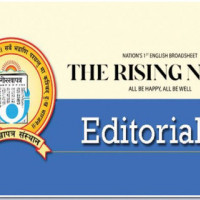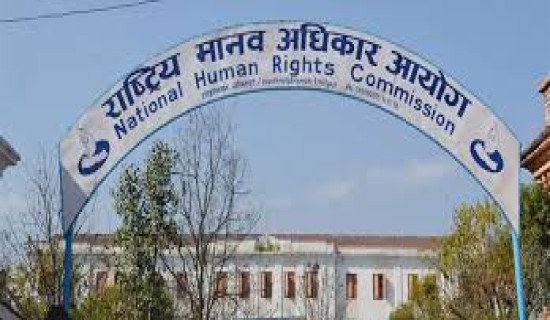- Wednesday, 28 January 2026
Boost In Nepal-China Ties
On the second day of his official visit to China, Prime Minister KP Sharma Oli Tuesday held important meetings with Chinese President Xi Jinping in Beijing. Oli also held talks with his counterpart Li Qiang. The two Prime Ministers oversaw the signing of a number of agreements that seek to enhance bilateral cooperation in the fields of trade, connectivity, investment, education, tourism, health, disaster relief and poverty alleviation, among others. The two nations inked 9-point agreements and issued 12-point joint statement, further deepening the age-old relations between two immediate neighbours characterised by friendship, sincerity, mutual benefit, trust and reciprocity. The leaders of the two nations had in-depth exchanges of views on consolidating China-Nepal relations under the new circumstances and shared common views on international and regional issues of mutual interest. Nepal and China had established diplomatic relations in 1955 and the bilateral relations have enjoyed sustained, stable and healthy development, mentions the joint statement.
During the meeting with Prime Minister Oli, Chinese President Xi expressed his commitment to facilitating the export of Nepali goods to China and mobilise Chinese investment to Nepal. In yet another important decision, he also announced a 500 million RMB grant support to Nepal. In his response, PM Oli, who is on a four-day visit to China, said that Nepal wanted additional support from China in economic and development initiatives and appreciated China's massive poverty alleviation drive that lifted millions of people out of abject poverty. Given that Nepal is in dire need of foreign investment, Oli's call for Chinese investment in Nepal and technology transfer is timely and significant for the country.
The 9-point accords are significant as they are geared towards boosting infrastructure development, financial assistance, media cooperation, agriculture, culture and literature between the two nations. They include letter of exchange on the construction of the Tokha-Chhahare tunnel, MoU on Nepal-China trade enhancement, exchange of certificate on the completion of the nine-storey Basantapur Durbar reconstruction, protocol on export of thermally processed buffalo meat, and MoU on development plan, financial and technical assistance, exchange of letter on cash assistance, and MOUs on Volunteer Chinese language teachers and communication technologies between Nepal Television and China Media Group.
Nepal and China have prioritised the timely and swift implementation of past agreements reached between the two countries. They signed Belt and Road Initiative (BRI) Cooperation Framework on Wednesday. However, they have yet to select the projects to be executed under BRI. In 2017, the two countries had inked BRI framework. In the joint statement, the two neighbours agreed to pursue deeper and even more concrete high-quality Belt and Road cooperation. They have expressed willingness to sign the MoU on building the Trans-Himalayan Multi-Dimensional Connectivity Network and the Framework for Belt and Road Cooperation as soon as possible. Prior to the PM's visit, ruling Nepali Congress and CPN-UML had agreed on a framework on BRI cooperation in which they decided to implement BRI projects only through grant, not loan.
The BRI primarily focuses on strengthening connectivity in areas such as ports, roads, railways, aviation, power grids and telecommunication, enabling Nepal to transform from a land-locked to a land-linked country. Nepal-China relations were upgraded to strategic partnership of cooperation during President Xi's visit in 2019. PM Oli's trip has added a new dimension to this strategic ties that feature ever-lasting friendship for development cooperation. Now it is high time the two countries revisited the past agreements and worked in tandem in implementing them, thereby strengthening political trust, mutual cooperation and bonhomie between the two neighbours.

















